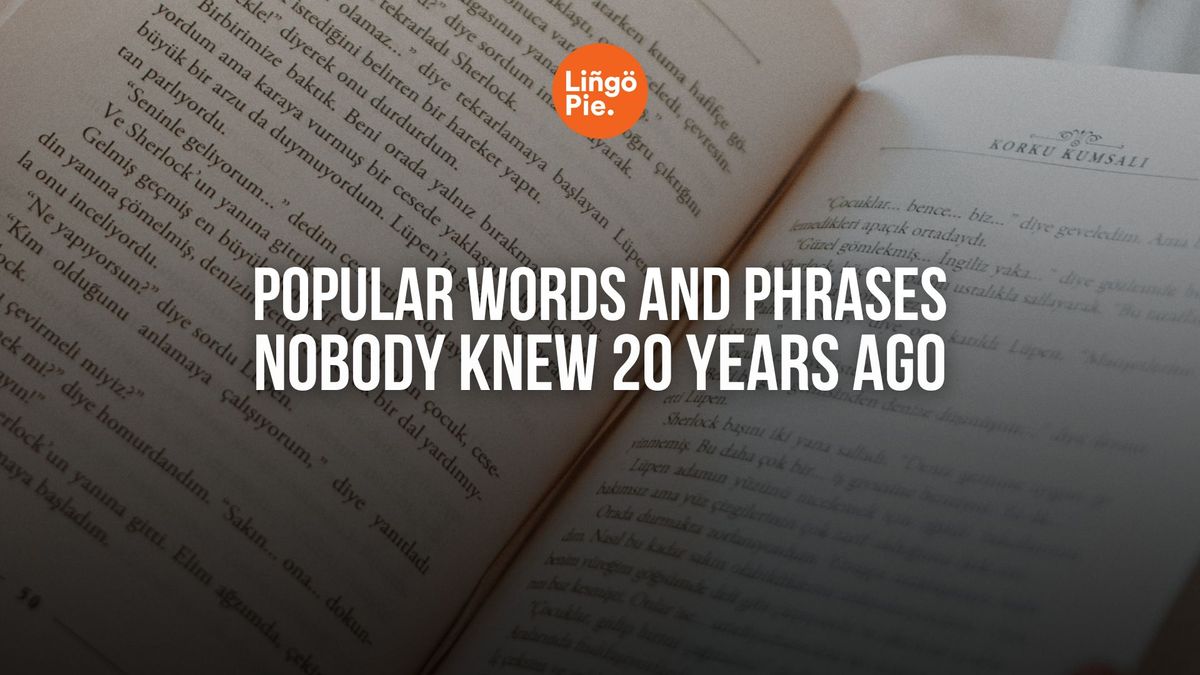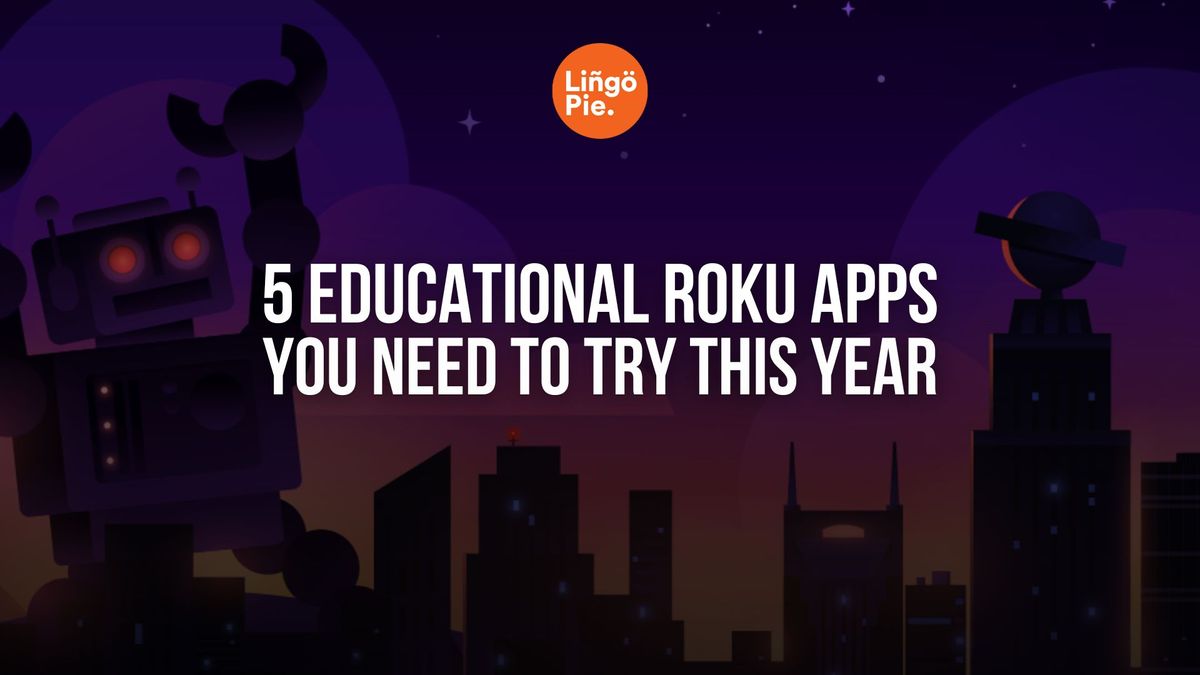Remember how we used to communicate back in 2004? Flip phones were all the rage, "Google it" was barely a thing, and social media meant having a MySpace page. Fast forward to 2025, these popular words and phrases would sound like an alien language to our past selves. From "rizz" to "quiet quitting," our vocabulary has evolved in ways that perfectly capture our changing world.
What's fascinating isn't just how these new words have sneaked into our daily conversations, but how quickly they've become essential to expressing our modern experiences. Whether you're "doom-scrolling" through your feed at 2 AM or getting called out for "gatekeeping" your favorite indie band, these phrases have become the perfect shorthand for life in the digital age.
So in this article, let's explore some of these linguistic newcomers that would have left people scratching their heads just two decades ago.
- How to Learn Spanish with News in Easy Spanish [Guide]
- 6 Best Italian Audiobooks for Language Learners
- 5 Best Educational Roku Apps To Try This Year

Popular English Words And Phrases
Enshittification
Enshittification describes how online platforms gradually become worse over time. Think of it as a three-act tragedy: First, the platform lures users in with great features and a smooth experience. Then, once they've hooked enough people, they start squeezing money from businesses that want to reach those users. Finally, they milk both sides for maximum profit until the platform becomes almost unusable – or as tech folks would say, "enshittified."
The term was popularized in 2023 by tech writer Cory Doctorow, and it quickly caught on because it perfectly captures what we've all experienced. From Instagram's endless ads to Reddit's API changes, enshittification explains why your favorite apps seem to get worse with every update. The word might sound harsh, but it's become a serious term in discussions about digital economics and platform sustainability.
Girl Math
"Girl math" exploded across social media in 2023 as a playful way to describe the creative financial logic some people use to justify their purchases. It's the kind of reasoning where if you return a $100 item, that money doesn't go back to your bank account – it becomes free money for new shopping. Or the classic "if I wear this $200 dress to four events, it really only costs $50 per wear!"
While the term started as a TikTok trend, it's become such a widespread phrase that even financial advisors have started using it (usually while gently explaining why this logic might not be the best for your bank account).
Barbiecore

The term describes the ultra-feminine, pink-dominated aesthetic that takes inspiration from everyone's favorite plastic fashion icon, Barbie. While pink has always been around in fashion, Barbiecore specifically embraces the bold, unapologetically vibrant shade that screams "I'm a Barbie girl in a Barbie world."
This style movement really exploded in 2023 with the release of Greta Gerwig's "Barbie" movie. People use the term when describing anything from home decor to fashion choices: "My living room is going full Barbiecore with this hot pink couch" or "That hot pink Valentino collection was peak Barbiecore."
Bed Rotting
Ever heard someone say "I'm just bed rotting today" and wondered if they needed a wellness check? Don't worry - bed rotting isn't nearly as concerning as it sounds. This Gen Z-coined term describes the perfectly intentional act of spending hours in bed, usually scrolling through TikTok, watching Netflix, or just lounging around with snacks. It's basically a rebellion against hustle culture wrapped in cozy blankets.
While older generations might call this "being lazy" or "wasting the day," younger folks have embraced bed rotting as a form of self-care and stress relief. You might hear someone say "I had a rough week at work, so I'm bed rotting all weekend" or "Today's bed rotting agenda: true crime documentaries and pizza." The term really took off during the pandemic when many of us discovered the therapeutic benefits of just... doing nothing. Think of it as a modern version of "taking a mental health day," but with more blanket burritos and fewer guilt trips.
Greedflation
Greedflation emerged as a biting term to describe what many see as corporate opportunism during times of economic stress. It points to companies that jack up prices well beyond their increased costs, using broader inflation as cover to boost their profit margins. Think of a company that raises prices by 15% while their actual costs only went up by 5% - that extra 10% bump? That's what people are calling greedflation.
You might hear the term pop up in conversations like "Sure, eggs got more expensive because of bird flu, but $7 a dozen is pure greedflation" or "The car rental company blamed inflation for their rate hike, but their earnings report shows record profits – classic greedflation." The word gained serious traction in 2023 as consumers started noticing that while their wages stayed flat, many companies were reporting their highest profit margins ever.
Pretty Privilege

Pretty privilege captures a social phenomenon that people have always known about but didn't have a name for until recently. It describes how conventionally attractive people often get special treatment in life – from better service at restaurants to more job opportunities and even lighter sentences in court. Think of it as society's beauty bias operating on autopilot.
The term has sparked important conversations about unconscious bias, with people sharing stories of how their treatment changed based on their appearance – whether it's after a makeover, weight loss, or even just putting on makeup. While the concept isn't new, giving it a name has helped people identify and discuss these unfair advantages that often go unnoticed by those who benefit from them.

Global Boiling
"Global boiling" entered our vocabulary when UN Secretary-General António Guterres used it in July 2023 to describe our planet's escalating temperature crisis. Unlike its milder-sounding cousin "global warming," this term captures the intensity of extreme heat events that have people literally cooking in their own cities.
While scientists might prefer more technical terms, global boiling has stuck around because it viscerally communicates what's happening when Death Valley hits 128°F or Phoenix endures 31 straight days of 110°F+ temperatures. The term might sound dramatic, but that's exactly the point – it's meant to convey urgency about our changing climate in a way that "warming" just doesn't capture.
Flex
“Stop bragging” or “Stop showing off” is something that your mum or grandma would say to embarrass you around new people, and so the word ‘flex’ was invented to keep things much cooler. If someone says “I can drink a beer with my nose”, you can say “Weird flex, but ok.”
Originally, ‘flexing’ is something you do with your muscles to show how big they are (tensing them) but gradually over time ‘flexing’ became a word used in any context where someone is proud of something. It can also be used in a positive way or as a compliment, for example, if someone posts on insta saying they’ve graduated university, you can reply “FLEX” which basically means “I’m proud of you” or “Be proud of yourself!”
Ghosting

Unfortunately, in a world where “We’re talking [online]” is more common than “We’re dating/courting”, I’m sure we’ve all been ghosted at some point. To ‘ghost’ someone means to stop replying to their messages, ignore them, cut them off and act like you never knew them; to turn yourself into a ghost. Often used when two people are no longer involved with each other, but one person doesn’t understand why, it’s common to hear someone explain to their friend “We actually went on like three dates but now she’s ghosting me.”
Read Also: The 14 Best Halloween-Themed Shows to Learn a Language
Cringe
A feeling, an adjective, an insult. And none of them are good. If something is cringey it means that it’s embarrassingly awkward or uncomfortable and makes you squirm weirdly when you see it. Public displays of affection, people trying too hard to be funny, or memes that aren’t on the right side of ironic are all examples of cringeworthy things.
It’s also common to cringe when you remember something embarrassing that you did in your past, or when your mum tries to use slang words like “flex” around your friends. “Mum, stop it, that’s so cringe.”
Cancel Culture
Now that people’s opinions can be just as popular as the celebrities that the opinions are about (because of social media), if anyone famous says or does anything remotely offensive, insulting or ‘sinful’, then it’s likely that a ‘mass cancelling’ of that person will ensue. For example, if it makes the news that a pop singer tweeted something homophobic when they were younger, a good chunk of their fans and followers will no longer listen to their music and will encourage people to do the same.
People can also do this within their friend group or family which can be very problematic; initially intended to encourage compassionate thinking and politically correct behaviour, cancel culture has become quite the controversy over the years as many people have committed suicide from experiencing severe cyber-bullying and being cancelled instead of having their apology publicly accepted. “Kanye’s been cancelled,” but is cancel culture really beneficial to society or is it just another type of oppression, and suppression of freedom of speech?
Woke
More than just the past tense of ‘wake’, “stay woke” was an African-American term invented in the 1930s to encourage people to ‘wake up’ to institutionalised racism and social injustice. Regaining popularity in the 2000s through BLM movements (since 2014) and music by Childish Gambino and Eryka Badu (since 2008), this idea of ‘being woke’ no longer just refers to social awareness, but self-awareness in general in an attempt not to become too mindless or too comfortable in any situation.
However, as the inevitable pejoration of the word befell as it gained popularity, ‘woke’ became an insult towards youths who no longer respected the way that society is run. “These lefty snowflakes with their wokeness are a pain in the ass.” (IE: I think that compassionate left-wing/Labour supporters and their non-traditional opinions are really annoying.) It’s important to remember where we take language from and honour its history respectfully, so hopefully the power of a word like ‘woke’ will come back around.
Podcasting

Another swift change of topic… That’s right, one of our favourite ways of learning a new language has only been around since 2004! Coined from the words ‘iPod’ and ‘broadcast’, ‘podcasting’ is the act of recording a conversation and publishing it online to be listened to as a digital audio file. Podcasts have quickly become a popular medium for entertainment and education, and many podcasters like Joe Rogan are our new favourite celebs! (Although a lot of people have already cancelled him…)
Related: The 11 Best Podcasts to Learn French
Sexting
A big change in topic… When ‘sex’ and ‘texting’ comes together, you get ‘sexting’, a 21st century phenomenon where two people play with their sexual energy and imagination using only messages and - more recently - pictures or ‘nudes’. EG: “We were sexting all night and sending each other nudes, it was super hot. Hope he doesn’t start ghosting me.”
Photobomb
A new neologism was invented since taking pictures became an everyday part of life, to photobomb someone or to photobomb a picture means to turn yourself into a ‘bomb’ and unexpectedly pop up in the frame of a camera lens just as the photo is about to be taken. Many special on-camera moments have been ruined by photobombers, but they instead create a picture that ends up being a lot funnier or more memorable than initially intended. Social media users tend to enjoy celebrities photobombing other celebrities or animals photobombing humans!
Contactless
As technology flourishes in the modern day, paying for trains, buses and food via contactless payment is the quick and easy approach to simple shopping. ‘Contactless’ is when you hover a debit or credit card - or even a smart/mobile device - over a scanner at a checkout terminal or card reader and effortlessly pay for whatever you want to pay for. No physical cash or even physical touching needed. Contactless credit cards were first used in the US in 2004, whilst the UK and Europe began offering contactless payments shortly after in 2007.
Binge-watch
The verb ‘bingeing’ means to indulge excessively in a substance such as drugs, alcohol or unhealthy foods. But with the invention of Netflix, Amazon Prime and Disney+, bingeing on a TV series has become everyone’s favourite pastime. To ‘binge-watch’ means to watch episodes of a TV show one after the other without stopping, such as “I can’t stop binge-watching F.R.I.E.N.D.S. I haven’t done anything else all week.” You can also do a general binge-watch of a particular platform rather than a specific series, for example, “I binge-watched Netflix all weekend, must have seen every documentary film on there.”
Which Popular Word Are You Using Next?
Language, like fashion and technology, never stands still. These new words and phrases do more than just fill gaps in our vocabulary – they tell the story of our changing world, from our climate concerns to our online frustrations and social observations.
Want to stay ahead of the language curve and sound like a native speaker? Try Lingopie and dive into authentic content that features real, current language as it's actually used. With thousands of TV shows and movies in multiple languages, you'll learn not just these trending terms, but also the natural way to use them in conversation.
After all, keeping up with language trends is about more than just knowing the words – it's about understanding the culture and context behind them.









![How To Learn English With Sitcoms: 5 Easy Ways [Guide]](/blog/content/images/size/w300/2023/09/94E050B7-BD8B-4659-B6E5-B5996E461FC8.png)

